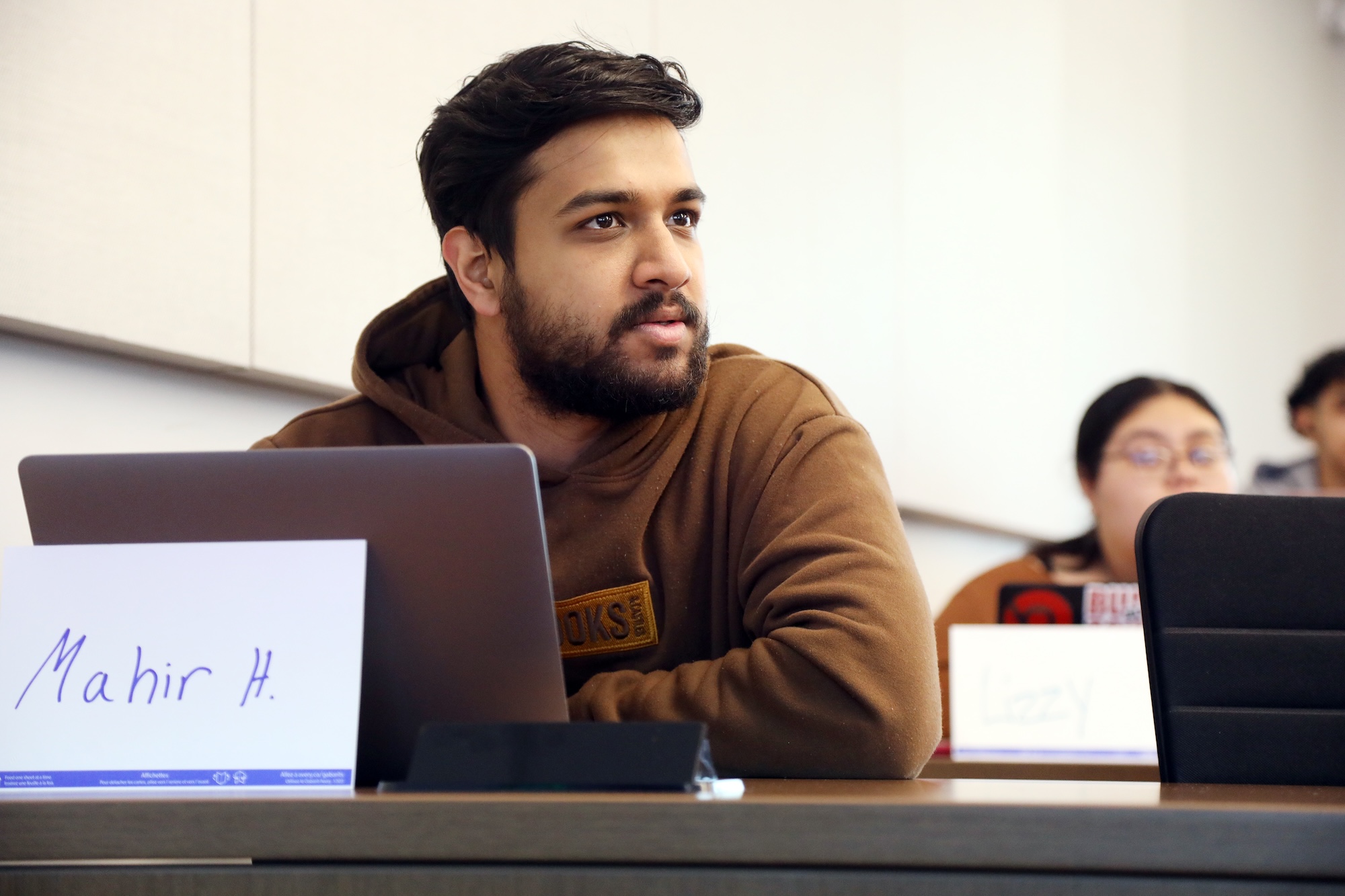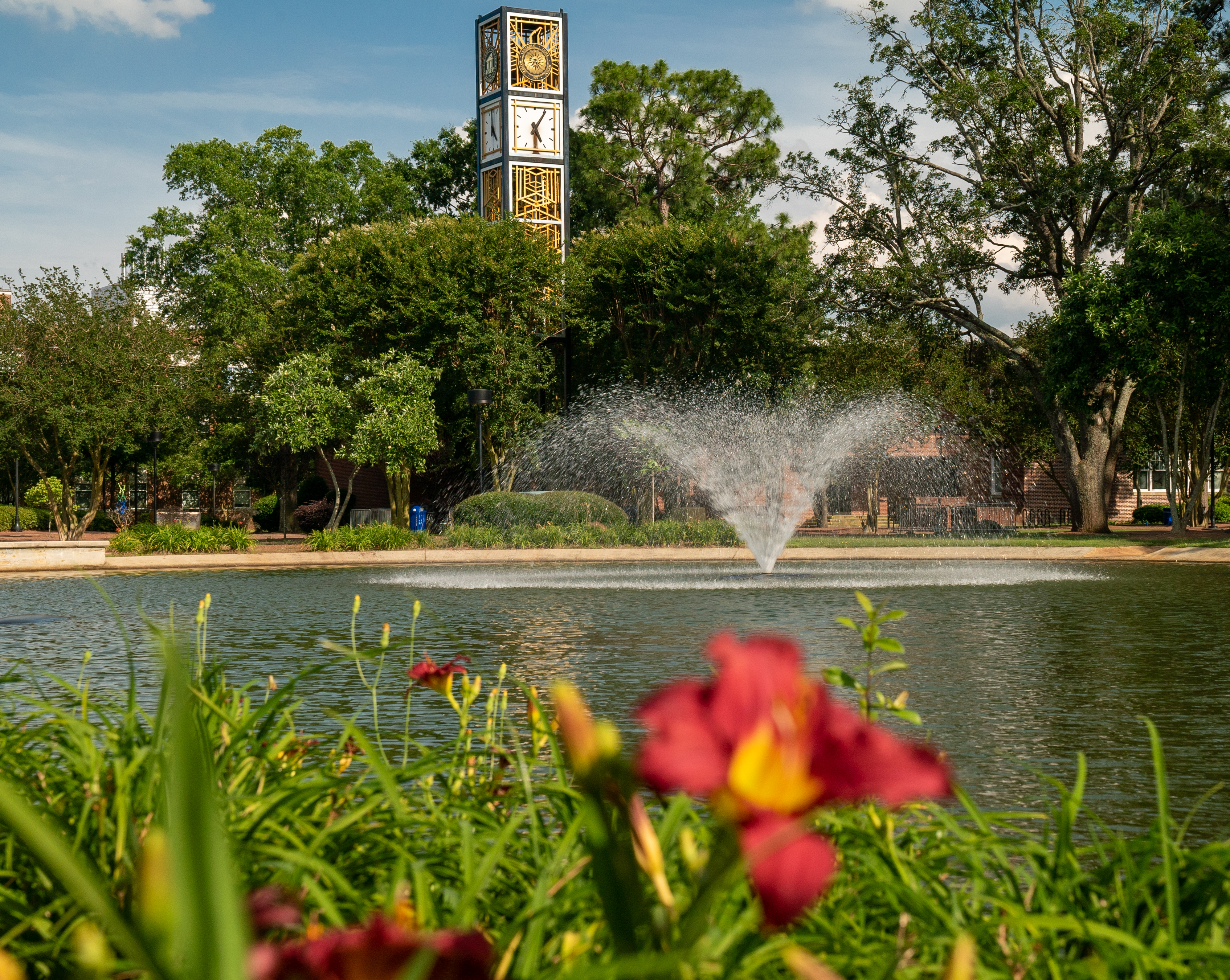International Students
Accepted & Incoming Students
Phase 1 - Admissions: Haven't applied or been accepted? Learn more
Phase 2 - UNCP Immigration
Phase 3 - United States Immigration > Receive Visa
Phase 4 - Orientation registration conditional upon Visa certification
Phase 5 - Book flights and secure transportation
Phase 6 - Arrival
Phase 7 - Orientation and begin studying classes
** Please take note of the deadlines below as it pertains to visa, planning in advance will provide you with the best chances of a stress-free and successful arrival.
Financial aid eligibility will depend on what visa classification you hold. A traditional F-1 visa holder does not qualify for any U.S. Federal Financial Aid. However, you may be eligible for other sources of funding such as external scholarships or private loans.
Our office has incorporated some external links below to research scholarship opportunities:
Scholarships for International Students | BestColleges
International Scholarships Search | Financial Aid To Study Abroad
List of Scholarships for International Students | eduPASS
Hispanic and Latino Scholarships
College y Consejos, an initiative of LatinxEd Scholarship Spreadsheet
Our institutional scholarships for students are located in the BraveAssist portal. You will log into this using your UNCP login credentials and complete a general application, then you will be auto-matched to any scholarship that you may qualify for.
Here are scholarship opportunities across the U.S. for international students.
Here are the undergraduate fees for the 2024-2025 school year. You would be considered a "Non-Resident" student.
Unfamiliarity, misunderstanding and legitimate cultural differences will not excuse
an international student from adhering to UNCP’s policies of academic integrity and
student conduct. So, in order to have a successful experience here, it is important
for you to become familiar with them. Be aware that standards are strict and can affect
an international student's immigration status. UNCP students are expected to uphold U.S. ethical standards when performing research,
writing papers, taking tests and completing other assignments. Unless specifically stated on the syllabus or in writing by the professor of your
course, you should not work on classwork in groups or with a friend. If you use a statement, idea or information from any other source, you must credit
that source in your work, or you may be accused of plagiarism. Plagiarism is defined
as using someone else’s words or ideas and presenting them as your own. Whether intentional
or unintentional, a charge of plagiarism is an academic integrity violation and has
severe consequences for your student status with the university and, subsequently,
with your immigration status. If you are unsure about your assignment, always seek
advice directly from your professor. The Office of Student Conduct implements policies designed to avoid behaviors that
can disrupt the university and its community. As students of UNCP, you should remember
that you are always representing the university wherever you are. It is very important
that you do not engage in conduct or behaviors that could violate the Code of Student Conduct, whether you are on or off campus. If you are officially charged with a crime or
engaging in unacceptable behavior, you could lose your good standing with the university
and, subsequently, your legal F-1 or J-1 status. All students are required to maintain a minimum Grade Point Average (GPA). At UNCP,
undergraduate students are required to maintain a GPA of at least 2.0 to be in good
academic standing. If you fail to meet the required GPA, you could lose your academic
standing, which will affect your immigration status. There are resources available
on campus to help you achieve academic success, such as the University Writing Center and the Center for Student Success. If you’re struggling, get help as early as possible!Academic Expectations
Academic Integrity

Student Conduct
Academic Standing
Program Completion
Students who have maintained valid F or J status for the duration of their academic program are eligible for a grace period following successful completion of an academic program. For F students, the grace period is 60 days. For J students, the grace period is 30 days. The start of a student’s grace period is typically the last day of the last semester of enrollment. During the grace period, students cannot work or take courses. The grace period is intended to allow students a period of time in which to wrap up their affairs and prepare to depart the U.S., or to travel within in the U.S. Students who depart the U.S. during the grace period will not be able to re-enter the U.S. using the F/J visa + I-20/DS-2019 (except for OPT students - please see information about travel during OPT.)
By the time of program completion or before the end of the permitted grace period, a student must pursue one of the following post-completion options:
- Depart the U.S. (notify Global Engagement using the Departure Form)
- Transfer to Another Academic Program
- Apply for post-completion OPT (F only)
- Apply for a change in academic level
- Apply for a change in non-immigrant status
International Student Forms
Academic Training
J-1 students may wish to engage in academic training during or soon after completion of their studies. Academic training must be related to the student’s degree program. Students are potentially eligible for one month of academic training for each month that they are in their academic program, with a cap set at 18 months.
Curricular Practical Training (CPT)
F-1 students may wish to engage in Curricular Practical Training (CPT) during their studies. CPT must be related to the student’s degree program.
On Campus Employment
Students who are maintaining F-1/J-1 status are eligible to work on campus. OGE must provide permission for all F-1/J-1 students to work on campus. Work performed on the school premises is "on-campus" employment as long as the employment provides direct services to students. If you are unclear if a job would be considered “on-campus” employment, please check with an international student advisor.
Off Campus Employment
F-1/J-1 students are not permitted to work off campus without prior authorization from OGE and/or U.S. Citizenship and Immigration Services (USCIS).
Optional Practical Training (OPT)
Optional Practical Training (OPT) is an employment authorization for eligible students in F-1 status who wish to engage in off-campus employment in their field of study. OPT is, primarily, work authorization after program completion. Students will work with OGE to obtain the I-20 with the OPT recommendation and then file the complete application to USCIS for final approval and issuance of the Employment Authorization Document (EAD). The EAD authorizes the student to engage in temporary employment for up to 12 months anywhere in the U.S. As OPT involves OGE and USCIS and can take several months to process, students are encouraged to apply as soon as they confirm degree completion.
Students who have been approved for OPT should create an account on the SEVP Student Portal to maintain their records.
Assistantship
An assistantship, unlike on-campus employment, is a paid academic appointment made to a graduate or undergraduate student that involves part-time teaching, research, project assistance or other duties associated with an academic department.
Employment Forms
This form should be used if you are a F-1 or J-1 student moving up from one education level to another. Submit the complete COL application to OGE within 30 days prior to the start of the semester when you will begin your new education level.
This form should be used if changing majors from one major to another or if you are adding a major. Submit the complete COM application to OGE within 30 days prior to the start of the semester you will begin your new major.
A complete application must be submitted at least 30 days prior to the current program end date. In order to apply for an extension, you must submit a complete application showing documentation of an academic need, unforeseen by yourself and supported by your department. You must also provide a new Financial Certification.
Reduced Course Load Application
Possible reasons for a reduced course load (RCL) include: medical reasons, academic hardship and final semester enrollment. Please make an appointment with an immigration advisor to discuss your eligibility.
Payments should be made in the Bursar's Office in Lumbee Hall.
Print the OGE Event Payment Slip, fill it out and take it with you so that the payment will be credited to your account. Payments will not be accepted without a printed slip.
This Payment Slip may also be used for OGE services such as bedding, TOEFL tests, etc.
*This form should only be used for Global Engagement event and service payments.
In order to apply for an ITIN, you'll need to submit the following to the IRS by mail:
- Form W-7
- Copy of Active I-20
- Certification Letter from DSO (Please come by Belk Hall to receive that letter)
- Copy of Passport
- Copy of Visa
Once completed, you will mail all the printed documents to the address below:
Internal Revenue Service
ITIN Operation
PO Box 149342
Austin, TX 78714-9342
